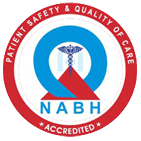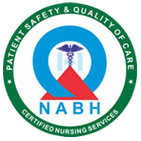Many people turn to complementary and alternative medicines (CAM) when they have a chronic illness. Complementary and alternative medicines are medical treatments that are different from the traditional treatments you would receive at most U.S. doctors' offices. These treatments include herbs, dietary supplements, acupuncture, chiropractic and massage therapy, and biofeedback. Alternative treatments are often used alone, while complementary treatments are used in combination with traditional treatments your doctor prescribes.
Are there complementary and alternative medicines to treat asthma?
There are many complementary and alternative treatments that claim to treat asthma. However, because there have been few or no research studies on most of them, the effectiveness and safety of many are unknown.
Here are some examples of complementary and alternative treatments for asthma:
·
Herbs and vitamins. It is believed that some Chinese herbs, like ding-chan tang (DCT), can decrease inflammation and relieve bronchospasm. Ma Huang (ephedra), a common herb used in dietary supplements, has been used for years as a bronchodilator. Ephedra has been banned by the United States Food and Drug Administration (FDA). Some studies have also shown that vitamin C improves asthma symptoms.
·
Yoga. Breathing exercises used in yoga have been found to help some asthmatics control breathing and relieve stress, a common asthma trigger. Current research does not prove that yoga eases asthma symptoms, but if asthmatics feel that yoga helps them feel and breathe better, there is no reason they should not continue to practice it.
·
Acupuncture. There are some reports that acupuncture can help in the treatment of asthma, but this has not been proven.
·
Biofeedback. Learning to increase the amount of air inhaled has reduced fear and anxiety during an asthma attack for some asthmatics.
Is it safe to use complementary and alternative asthma treatments?
Most people think of herbs as being natural and therefore safe to take. However, many herbs have not been thoroughly tested, and the FDA does not regulate them. This means that the purity and amount of herb in each dose--and therefore its safety--cannot be guaranteed.
Some herbs used to treat asthma have been found to interact with other medicines. For example, Gingko biloba, used to decrease inflammation in the lungs, could cause bleeding problems in people who are also taking the blood thinner warfarin (Coumadin
®). Licorice root, used to soothe the lungs of asthmatics, can increase blood pressure. Ephedra has been used as a bronchodilator but has also been linked to some unexplained deaths.
It is very important that you
always inform your doctor if you are taking any herbs or dietary supplements. Some herbs may worsen your asthma or other medical condition, or they may interfere with prescribed medicines you are taking.
How do I know which products are safe?
Because most alternative and complementary treatments are not regulated, it is difficult to know what you are getting. Here are some tips to follow when considering using alternative treatments.
· Talk to your doctor about any herbal products you are considering before trying them.
· If you experience side effects such as nausea, vomiting, rapid heartbeat, anxiety, insomnia, diarrhea, or skin rashes, stop taking the herbal product and notify your doctor.
· Avoid preparations made with more than one herb.
· Beware of commercial claims of what herbal products can do. Look for scientific-based sources of information.
· Select brands carefully. Only purchase brands that list the herb's common and scientific name, the name and address of the manufacturer, a batch and lot number, expiration date, dosage guidelines, and potential side effects.




